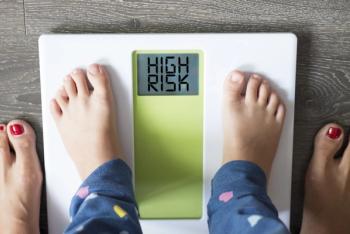
Thao-Ly Phan, MD, MPH, stresses healthy routines to prevent weight gain during respiratory season
Thao-Ly Phan, MD, MPH, highlights how lessons from pandemic-related weight gain can guide pediatricians in addressing stress, prevention, and whole-child health.
A recent study published in JAMA Pediatrics has shed light on how children with a COVID-19 diagnosis experienced more rapid weight gain compared with their peers during the pandemic, adding to concerns about long-term impacts on child health. The analysis, which used data from the National COVID Cohort Collaborative, followed more than 11,000 people aged 2 to 18 years who had positive test results for COVID-19, comparing their weight trajectories to matched controls without COVID-19. Findings showed that children with COVID-19 gained more weight after diagnosis than before, with nonhospitalized children showing the greatest increases. These associations persisted even after adjusting for demographics, time, and baseline weight status.
For Thao-Ly Phan, MD, MPH, medical director of the Healthy Weight and Wellness Clinic at Nemours Children’s Health, the significance of these findings goes beyond the pandemic itself. “The way I look at the pandemic is it was a period of extreme stress and disruption to the lives of so many children and families,” Phan explained. “Even though I hope that another pandemic doesn’t happen, I think it’s important that we keep in mind that children do experience stress and disruption from other things.”
Phan emphasized that the same lifestyle changes that fueled weight gain during the pandemic—poor sleep, irregular eating patterns, reduced activity, and stress—can also emerge during other disruptive events. “Whether it’s something that impacts a lot of children, like a pandemic or a natural disaster, or whether it’s something that impacts an individual child, things like parental separation or bullying or food insecurity…all those things can really impact lifestyle and overall health,” she said.
For pediatric providers, Phan underscored the importance of screening for social and environmental stressors that may affect health behaviors. Addressing these factors directly, she noted, is part of delivering whole-child care. At the same time, she encouraged clinicians to reinforce preventive health strategies that remain foundational.
“Really basic things—making sure children are getting plenty of sleep, eating nutritious food, drinking plenty of water, staying physically active, sticking to routines, getting vaccinations,” Phan said. “These are all things that are at the heart of what we do as pediatric providers and can really help kids as we head into the respiratory season.”
Ultimately, she added, preventive efforts not only support healthy weight trajectories but also prepare children to recover more quickly from illnesses such as influenza or COVID-19, ensuring they return sooner to school, learning, and family life.
Reference :
Mottalib M, Phan TL, Bramante CT, Chute CG, Pyles LA, Beheshti R. Impact of COVID-19 diagnosis on weight trajectories of children in the US National COVID Cohort Collaborative. Child Obes. Published online May 26, 2025. doi:10.1089/chi.2024.0256
Newsletter
Access practical, evidence-based guidance to support better care for our youngest patients. Join our email list for the latest clinical updates.






